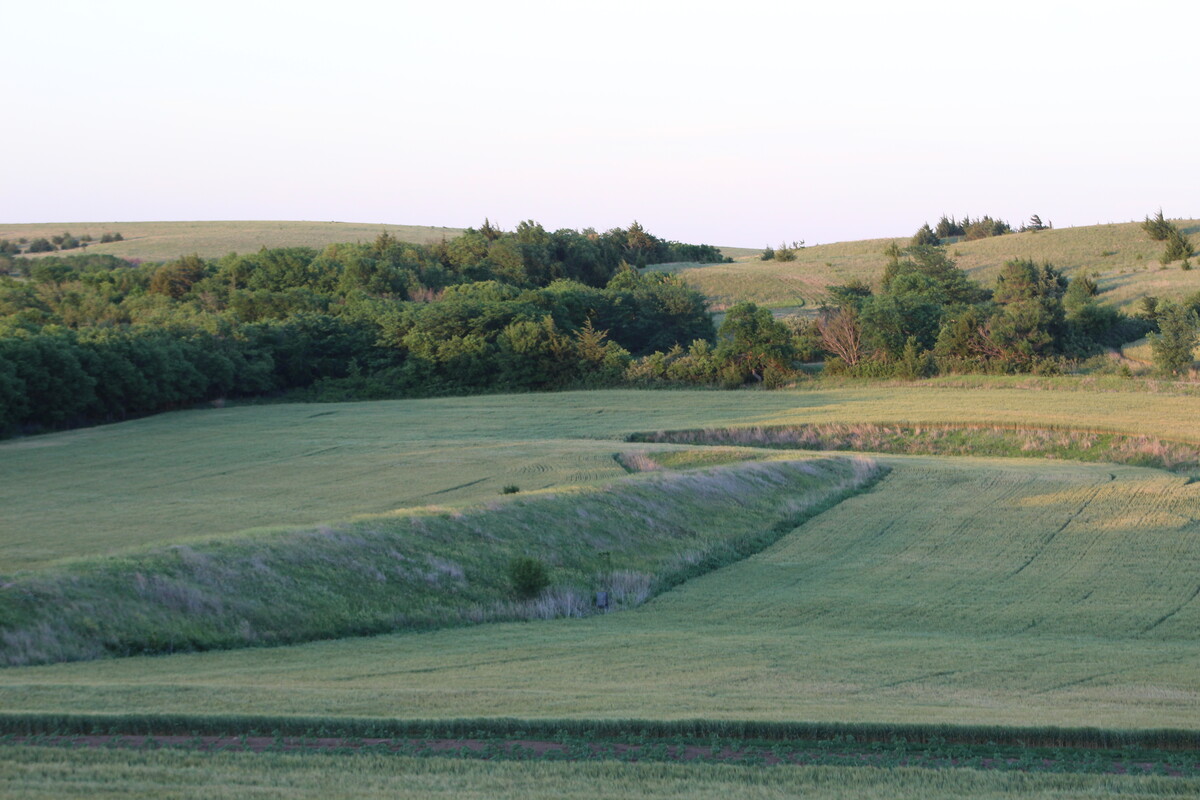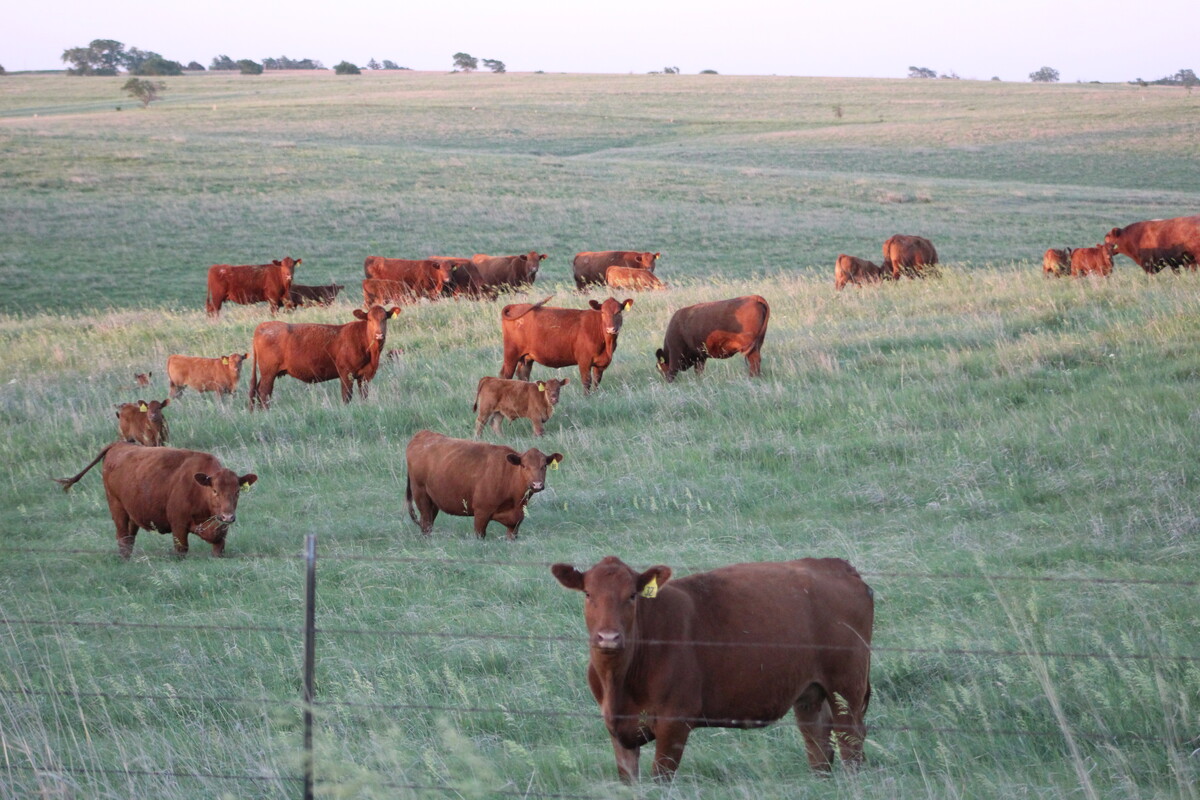Range Health
Kansas Association of Conservation Districts serves as essential resources for landowners, offering a combination of technical expertise, financial support, education, and advocacy. Through these efforts, we hope to play a crucial role in assisting landowners in improving and maintaining the health of rangelands, thereby ensuring the long-term sustainability of these vital ecosystems.
KACD's Principles of Range Health
-
Technical Expertise: We have a knowledgeable staff who can offer advice on sustainable grazing practices, soil health, water management, and wildlife habitat conservation. They help landowners make informed decisions about managing their rangelands effectively.
-
Educational Outreach: We conduct workshops, training sessions, and educational programs to raise awareness about the importance of proper range management. They educate the community about the significance of biodiversity, native plant species, and how to prevent overgrazing.
-
Financial Support: We often administer cost-share programs and grants that provide financial assistance to landowners for implementing conservation practices. These funds can be used for activities like reseeding native grasses, constructing fences to manage grazing patterns, or implementing erosion control measures. Please contact Your Local Conservation District for financial assistance and additional information.
-
Collaboration and Partnerships: KACD facilitates collaborations between various stakeholders, including farmers, ranchers, researchers, and government agencies. By fostering partnerships, they create a network of support for sustainable range management initiatives.
-
Monitoring and Assessment: We assist landowners in monitoring the health of their rangelands. They help in assessing vegetation cover, soil quality, and water resources, providing valuable data that landowners can use to make informed decisions about their management practices.
-
Policy Advocacy: We advocate for policies that promote sustainable agriculture and range management at the local, state, and national levels. They work to ensure that legislation and regulations support practices that enhance range health and biodiversity.
Range Health Practices
Improving range health in Kansas, as in many other states, involves implementing sustainable land management practices. Here are a few best practices specific to the state of Kansas:
Proper Grazing Management: Implement rotational grazing systems to prevent overgrazing. Rotational grazing allows pastures to rest and recover, promoting the growth of native grasses. Proper stocking rates and rest
Preserving Native Grasses: Encourage the growth and preservation of native grass species. Native grasses are well-suited to Kansas' climate and soil conditions. They are drought-resistant and provide essential habitat for local wildlife.
Water Management: Implement water conservation practices, such as building stock ponds, drilling wells and improving irrigation systems. Adequate and clean water sources are crucial for both livestock and wildlife. Proper water management also helps prevent soil erosion.
Soil Health: Practice soil conservation techniques, including cover cropping and minimal tillage. Healthy soil supports the growth of diverse plant species and improves water retention, promoting the overall health of rangelands.
Prescribed Burning: Implement prescribed burning practices under controlled conditions. Prescribed burns help control invasive species, promote the growth of native plants, and reduce the risk of wildfires by removing accumulated dead vegetation.
Invasive Species Control: Develop strategies to control invasive plant species that can outcompete native grasses. Regular monitoring and timely removal of invasive species are essential to maintain the biodiversity of rangelands.

Government Programs and Support: Take advantage of government conservation programs and financial incentives that support sustainable agriculture and range management practices. These programs can provide funding and technical assistance for implementing conservation measures.
Education and Outreach: Participate in educational programs and workshops that raise awareness among farmers, ranchers, and the general public about sustainable range management practices. Knowledgeable land stewards are key to maintaining healthy rangelands.
Collaboration and Research: Engage in collaboration between researchers, landowners, and government agencies. Research can provide valuable insights into local ecosystems, helping to develop effective range management strategies.
By adopting these best practices, Kansas can promote the health and productivity of its rangelands, ensuring they continue to provide essential resources for both agriculture and the environment.
Range Health Resources
Chemical information for use in range management
Check out the KSU Research & Extension's chemical weed control guide book.
Pesticide applicators, both commercial and private, must be certified in Kansas. Information on certification and other requirements is available from the Kansas Department of Agriculture. A copy of the private pesticide applications manual and information on additional integrated pest management topics are available through KSU Research & Extension.
Kansas Prescribed Fire Council
Prescribed Burn Associations
KGLC
Kansas Noxious Weed List (ks.gov)
Old world bluestem
